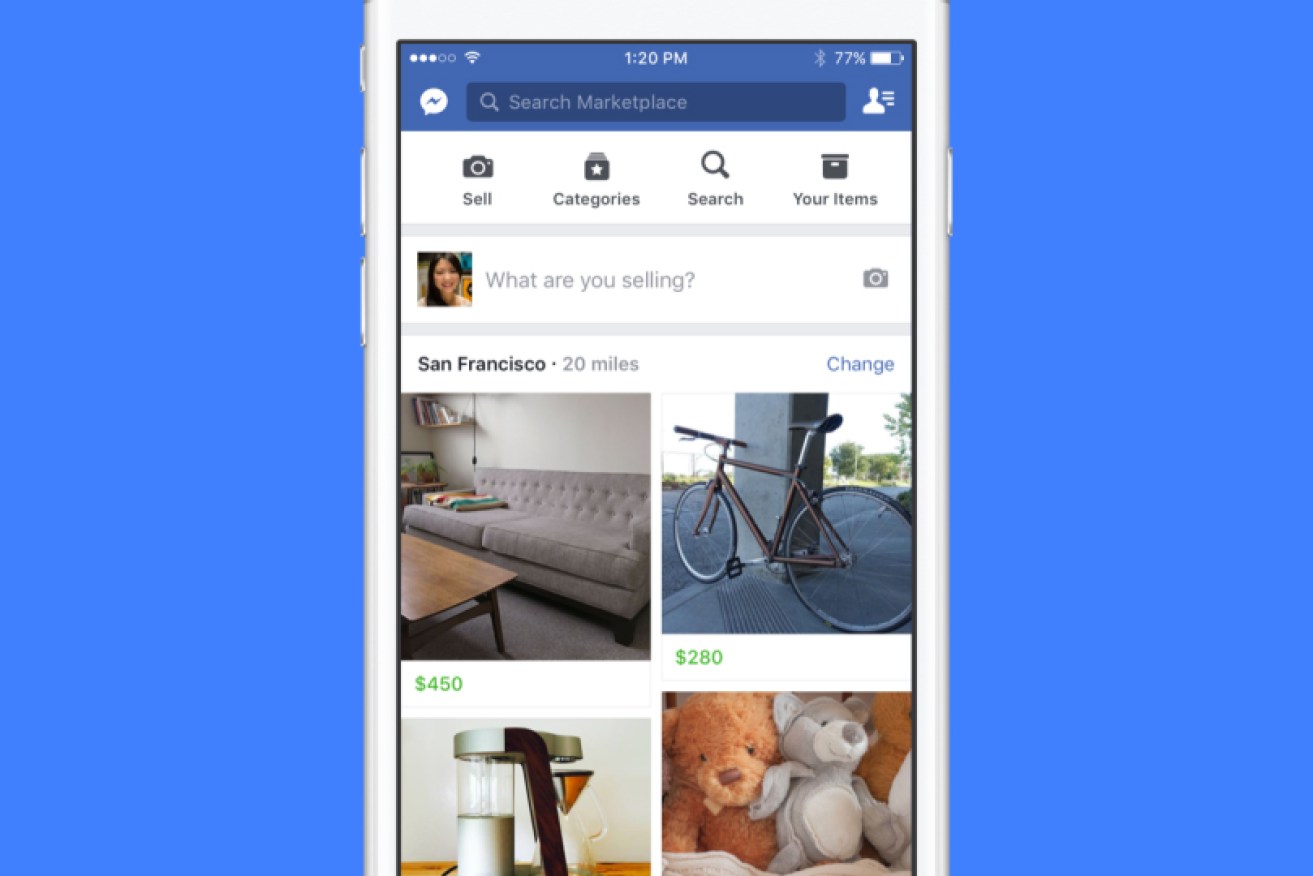Facebook hits roadblock in Marketplace rollout


Facebook has brought a slew of problems down on themselves with the rollout of Marketplace. Source: Facebook
Facebook has been forced to apologise and halt the integration of its new Marketplace feature after users flooded the system with fake and illegal listings.
Marketplace began rolling out on Monday, pitched by media outlets as a cross between Craigslist and Facebook’s buy-and-sell Groups.

What the Marketplace is supposed to look like.
Basically, the feature lets you see what people are selling in your area and builds stronger recommendations based on pages you like and your in-app purchase history.
Because of this, the interface is geared more towards casual browsing rather than specific searches.
The expansion is a logical step in retaining – and hopefully growing – Facebook’s user base. Currently, there are 450 million people using buy-and-sell Groups on the social network (roughly 25 per cent of Facebook’s total users).
Any issues that occur with sales on Groups are largely up to moderators to resolve.
But after a whole lot of hype and close to a year of tight-lipped testing, Facebook has had to swiftly curb Marketplace’s rollout until technical issues are resolved.
In a statement, director of product management at Facebook, Mary Ku, said: “We are working to fix the problem and will be closely monitoring our systems to ensure we are properly identifying and removing violations before giving more people access to Marketplace.”
Guns, drugs and babies
Facebook has always maintained a strong stance against the sale of living creatures and contraband on its network, but an issue with the automated review process meant these standards were waived for a few days.
Only hours into the rollout, Marketplace users took to Twitter to share the myriad of illegal, often hilarious items up for grabs on the network.
Hey @facebook, #Marketplace is off to a good start. Dogs. Guns. Sweet. pic.twitter.com/NoEpePuV96
— Josh Chace (@JOSHinHD) October 3, 2016
The New Daily came across a number of illegal listings on the app. These included live hedgehogs, snakes, marijuana, firearms and even infants.
While it was a joke to many, it quickly highlighted how potentially unreliable the service was, sparking fears that the service was too risky to use for legitimate purchases.
It’s not clear whether any of the illegal listings resulted in a legitimate sale being made.
Change of plans
In April, Facebook announced that it would be replacing the Messenger tab on its app with one for Live, Facebook’s native video livestream feature.
But when selected users gained access to Marketplace, it was via a tab in the bottom-centre of their phone screen – right where the Messenger tab used to be.

The easy-access Facebook Live button now seems to be nothing more than fantasy
Whether this means Facebook is downplaying the Live feature or it has enough traction to survive without a dedicated tab is anyone’s guess (Facebook is tight-lipped on the matter).
If the move does signal a shift in strategy, it makes a lot of sense given the financial balance the company needs to strike.
While Live’s profitability is still being questioned, a fully-functioning Marketplace could reap an estimated $5 billion annually.
Facebook did not disclose when Marketplace would resume a global rollout.








